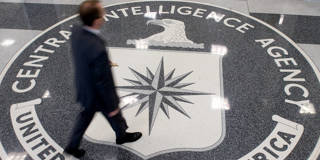From the outset, Harvard historian Calder Walton argues in a new book, Western leaders only belatedly recognized the vulnerabilities of their open societies and the magnitude of the threat posed by Soviet intelligence. Are they making the same mistake with China?
GLOUCESTER, MASSACHUSETTS – Studies of the role of intelligence operations inevitably have a Rashomon-like quality, with the same events yielding various, sometimes contradictory, interpretations. The world of intelligence, after all, is one of secrets, special-access compartments, covert action, clandestine relationships, and occasionally off-the-books escapades. This makes it very difficult to assess successes and failures, and to chronicle the role of intelligence in political leaders’ decisions.

GLOUCESTER, MASSACHUSETTS – Studies of the role of intelligence operations inevitably have a Rashomon-like quality, with the same events yielding various, sometimes contradictory, interpretations. The world of intelligence, after all, is one of secrets, special-access compartments, covert action, clandestine relationships, and occasionally off-the-books escapades. This makes it very difficult to assess successes and failures, and to chronicle the role of intelligence in political leaders’ decisions.